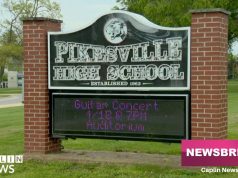In the year since an appellate court halted a developer’s plan to build 550 houses on the closed Southwest Miami-Dade Calusa Golf Course, wildlife has flourished.
Neighbors have documented multiple birds nesting on parts of the property and cling to hopes that the court ruling that blocked property development will be upheld by the Florida Supreme Court, which must rule on a challenge from the developer GL Homes.
The golf course, centered around 9400 SW 130th Ave., has been closed for 13 years. Since then, the owner, Facundo Bacardi, has been trying to transform the fairways, sandtraps and greens into housing. However, surrounding residents have fought to preserve the restrictive 99-year covenant signed in 1967 that blocks development of the golf course through 2067.
In February 2021, over the objection of neighbors, the Miami-Dade Commission approved the building of 550 homes by developer GL Homes, which bought the land from Bacardi for $32 million.
Residents, led by Amanda Prieto, who lives 500 feet from the golf course and is the head of a non-profit organization called ‘Save Calusa,’ went to court.
“I was trying to make sure that everyone knew that we did not give up, but also trying to make sure that residents have the opportunity to have an input in this plan,” Prieto says.
In addition to the impact on surrounding homeowners, Save Calusa argued that wildlife on the old golf course could be killed if the development moved forward.
“I started to think and research about which one of these species is protected,” says Prieto.
The birds, specifically the Tricolor Heron, were protected. Neighbors started documenting everything they saw.
“There was one specific location in the south end of the land, which is 50 feet from somebody’s house, and they told me to come over to their backyard and see hundreds of birds, and I couldn’t believe my eyes, Prieto said. “Not only were there hundreds of birds, but there were hundreds of birds nesting, which made it a rookery.”

In November 2021, Mayor Daniella Levine Cava issued a memo requiring additional environmental studies and stating that the Calusa rookery must be preserved. However, the developers continued to push it, and Save Calusa filed the lawsuit to the court asking to reverse the zoning approval, and halt tree/building removal permits until required environmental studies can be completed.
In November 2022, after Miami-Dade County independently verified that six imperiled hatchlings were born at the Calusa Rookery during the 2022 nesting season, verifying Save Calusa’s claim.
Levine Cava said that the rookery needed to be protected, and the Third District Court of Appeal ruled in favor of Save Calusa, reversing the approval of GL homes to build 550 houses.
The developer asked the court to reconsider its ruling in December 2022, but on Feb. 1, 2023, The Third District Court of Appeals denied the request for a rehearing. It will have to re-submit its proposal and give the public proper notice.
Last March, GL Homes appealed to the Florida Supreme Court. The Florida Supreme Court has yet to rule.
“We still stand with a good chance of winning, but right now, we are in complete winning mode,” Prieto said. For now, the developer can’t do anything but wait for a response, sell the land, or give up.
Michael Rosenberg from the Kendall Federation of Homeowner Associations and a Calusa homeowner for more than 25 years, said it’s a waiting game.
“It’s almost like you were watching the football game, and it was 20-20 and came a year later and say ‘how’s the game,’ it’s still 20-20,” Rosenberg said.
Some residents want the the golf course transformed into a park to protect the green spaces and the wildlife, but Prieto said that would be complicated.
“It would be the most beautiful park,” says Prieto. “But I do not think the county is in a good position to consider that right now.”
In the meantime, while the developer and residents wait on Florida Supreme Court, the birds are nesting in the rookery.

































